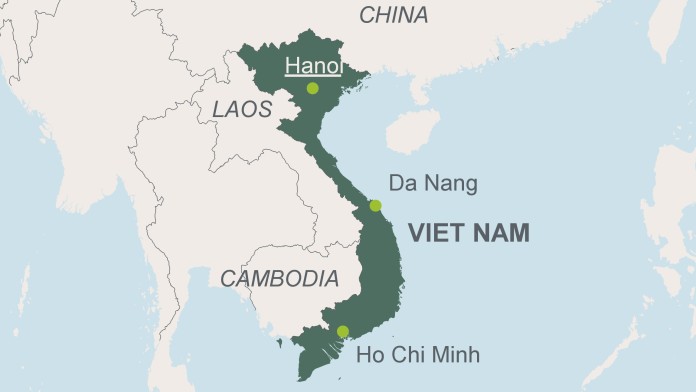
Since the mid-1980s, Vietnam has been transforming itself from a centrally planned economy to a market economy with a “socialist outlook”. Since then, poverty in the country has fallen sharply. Even this year, the country is expected to return to the high growth rates seen before the coronavirus pandemic. This is because Vietnam plays a highly significant role in global supply chains and the government quickly brought the coronavirus pandemic in the country under control. Vietnam in particular is expected to profit from the predicted diversification of supply chains in the Asian region.
From 2013 onwards, bilateral development cooperation with Vietnam has been based on the Vietnamese approach to promoting a sustainable growth strategy, the “Green Growth Strategy”. Key elements include sustainable development and measures to adapt to climate change. With the new socio-economic development strategy (SEDS), Vietnam’s government wants to achieve further progress in relation to the economy, social issues and the environment between 2021 and 2030.
KfW is supporting this economic transformation across various core topics on behalf of the German Federal Government.
Germany and Vietnam have agreed on renewable energy sources and energy efficiency as areas for action as sustainable energy offers a foundation for competitive, green and pro-poor growth. An environmentally friendly, reliable and cost-effective electricity supply is required if Vietnam wants to continue its strong growth. This is why Germany is supporting Vietnam in expanding its renewable energy sources and improving the efficiency of its transmission grids.
Adapting to climate change will require a major national effort, especially in the river deltas (Mekong and Red River), plus further expansion of coastal protection and adaptation of urban and rural infrastructure to cope with the direct and indirect effects of climate change. This is why Germany is supporting Vietnam to plan and finance these types of comprehensive programmes.
Since the mid-1990s, Vietnam has been continually reforesting, which has led to a country-wide increase in forest coverage. KfW Development Bank has been working on protecting biodiversity in Vietnam as an area of intervention since 1995, especially in north and central Vietnam. Since late 2012, it has also been involved in protecting the coast of the Mekong Delta. To date, 100,000 families have benefited from these measures.
They generate an income that is 30% higher than it would be otherwise, which benefits their children’s education in particular. The savings book approach proved to be particularly successful: the farmers are allowed to use all wood and by-products. The families’ land usage right is documented in the land register – the “red book”. In return, they undertake to reforest the land and sustainably manage the areas entrusted to them – while the land remains under state ownership. As compensation they receive a “green savings book”, guaranteeing them a savings deposit of up to USD 250 per hectare of successfully reforested or managed area, depending on the type of forest. Interest is paid on this amount and the deposit is disbursed over a period of six to nine years.
KfW Office Hanoi
Director KfW Office: Anette Haller
49 Hai Ba Trung Street
HanoiTower 12th Floor
Hanoi
Vietnam
+84 (24) 3934 5355
Fax: +84 (24) 3934 5356